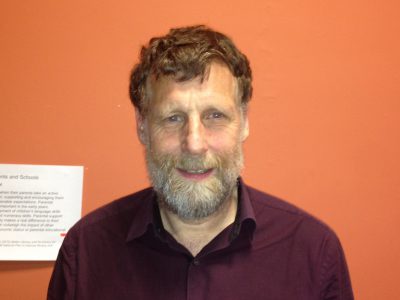Scottish environmentalist, author and broadcaster, Dr Alastair McIntosh, was well received in NUI Maynooth recently when he delivered lectures based on two of his books.
 During his talk on Island Spirituality, hosted by the Centre for Irish Protestant Studies, he gave fascinating insights into religious change and spirituality from the Outer Hebridean islands of Scotland where he grew up. This was illustrated by a variety of slides he took during a 12-day pilgrimage he made on the island of Lewis five years ago.
During his talk on Island Spirituality, hosted by the Centre for Irish Protestant Studies, he gave fascinating insights into religious change and spirituality from the Outer Hebridean islands of Scotland where he grew up. This was illustrated by a variety of slides he took during a 12-day pilgrimage he made on the island of Lewis five years ago.
During his pilgrimage “out in the wilds”, he sought out places of sanctity, in particular pre-Reformation chapels/temples, holy wells and sheelings (stone structures like the beehive huts that can be found in parts of Ireland). This helped him get a glimpse of the spiritual life of the island before “the harsh Presbyterianism” of his childhood took a hold.
While walking the length of the island, Alastair reflected on the Calvinist tradition and on the idea that there was something in the Celtic spirit about spiritual freedom – that one didn’t have to go through a hierarchy or priest to connect with God and that one didn’t need an intercessory in order to have the Bible “opened to you”.
Reflecting on the many different denominations that exist today, Alastair reached the conclusion: “We’ve all different windows and no window is perfect. What window does our own tradition shed on spirituality? Our task today is to repair our windows to let in the light again.”
Alastair talked about the necessity of recognising faith in each other, regardless of denomination: “Jesus said, ‘I am the real vine and you are the branches’ … we are profoundly inter-connected. That is the meaning of community … spirituality is not about us as individuals, but about community. Real spirituality is to be of the living vine. How does the vine grow? The gardener erects a trellis …. Our religions, at their best, are like those trellises – helping the vine grow. The vine has to be continually reformed … leading the vine to life.”
Alastair went on to say that at the end of the day what mattered was expressing spirituality in all its forms – “How we see and experience and nurture what we see that’s good in the world around us. The human face is made up of the image of God, is an icon of God – each of us is the face of God and when we start seeing that, that’s when we start living as the communion of saints …. It’s all about the work of love.”
Alastair also delivered a masterclass in Radical Human Ecology at the Department of Adult and Community Education. Alastair is a special adviser, and former director, of the Centre for Human Ecology in Glasgow, which aims to stimulate and support fundamental change towards ecological and social justice through education, action and research, drawing on a holistic, multidisciplinary understanding of environmental and social systems.
To find out more about Alastair McIntosh, click here.
You can hear a recent talk Alastair gave on ‘Island Spirituality’ at the Peace Institute in Glasgow by clicking here. It is similar to the talk he gave in Maynooth insofar as he explores the profound values and experiences that get behind the stereotypes of island religion and how they have informed his work. This talk also includes how aspects of European Puritan thought raise questions about the political doctrine of Manifest Destiny and American Exceptionalism – an argument that found recent prominence in President Putin’s address to the American people about war in Syria.
